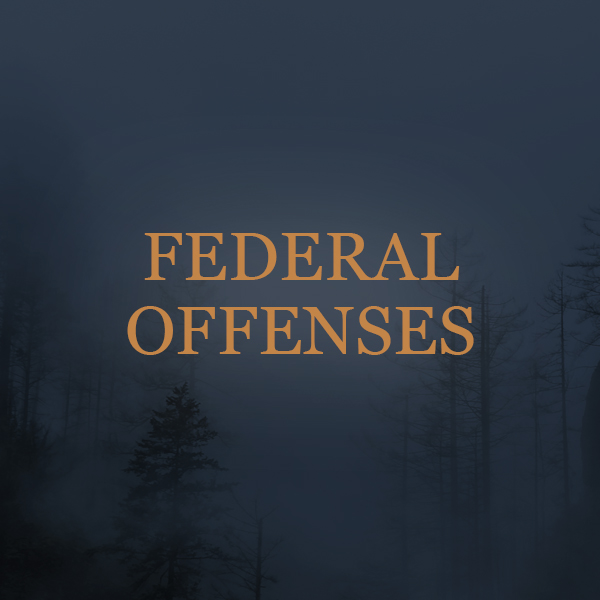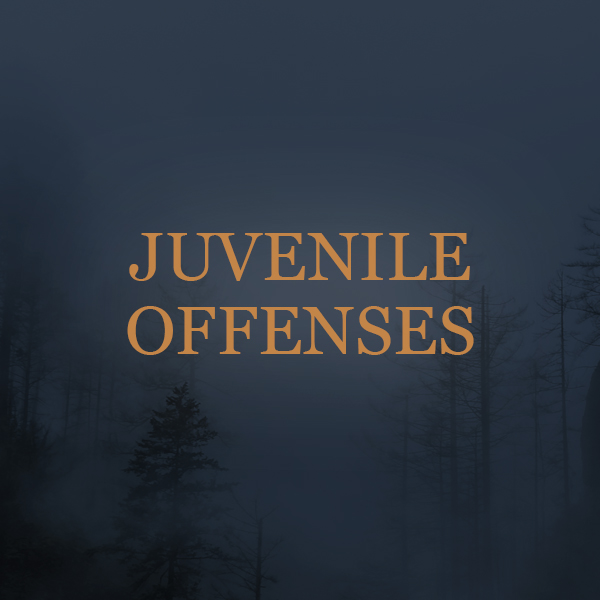Have you been falsely accused of stalking? Do you believe the police may be investigating you? Has someone threatened you with a stalking accusation? If so, it is time to get in touch with an experienced Eugene, Oregon defense attorney. If you are convicted of stalking, there could be serious lifelong consequences. Do not become a victim of a false stalking charge! Learn what does and does not constitute stalking, and begin to analyze the situation. Where are the holes in the case your accuser is making?
Oregon Stalking Law
In Oregon, stalking charges are covered under ORS 30.866, which is colloquially known as the Civil Stalking Order statute. Under the Civil Stalking Order Statute, the petitioner in a stalking case must demonstrate several facts in order to be grated a civil stalking order (or restraining order).
First, the petitioner must show that the person against whom the order is sough has “intentionally, knowingly, or recklessly engag[ed] in unwanted contact with the petitioner or a person in the petitioner’s household, thereby coercing or alarming the other person.” If that sentence fails to sum up your conduct, chances are you might be a victim of a false stalking order.
It is important that the petitioner demonstrate to the court that the person in question was operating with either malice or negligence. Simple, non-threatening “following” strains the law to breaking, but this doesn’t necessarily mean that getting a stalking order is prohibitively difficult.
Part and parcel of the first requirement, the second demands that “it is objectively reasonable for a person in the victim’s situation to be alarmed.” If the petitioner claims that the presence of their supposed stalker alarms them, the question before the court will be “should it?” Answering that question is the job of a good criminal defense lawyer. They know how to help juries understand just what it means when the law says “objectively reasonable.”
Their understanding the difference between “objectively reasonable” and simply “plausible” could be the difference between freedom and a hefty burden. Having the right team on your side means coming in the with confidence that your best case will be made.
The last requirement of the Civil Stalking Order statute is “the repeated and unwanted contact cause[s] the victim reasonable apprehension regarding the victim’s safety (or the safety of the member of the victim’s household.)” Again, all the weight of the case hangs off that word “reasonable.”
Unfortunately, in the many supposed stalking situations, restraining orders are used not as they are intended (to protect the vulnerable from dangerous people) but to gain leverage in other situations. Your team of experienced defense attorneys will work hard to demonstrate what a “reasonable apprehension” is. With Veralrud and Fowler, you can rest assured that your criminal defense lawyers have taken every possible step to protect your interests.
How Do I Apply for A Stalking Order?
Applying for a stalking order can vary from jurisdiction to jurisdiction. Some jurisdictions are perfectly content using only the rules found in ORS 30.866, while others want to put their own spin on things with supplemental local rules. Consulting with your Eugene defense lawyer will help you figure out how restraining orders and stalking orders are issued in your area.
Stalking as a Crime
ORS 163.732 is the part of Oregon law that covers stalking as a crime. Much like those found in ORS 30.866, the rules found in ORS 163.732 outline the specifics of a criminal stalking charge.
First, it must be shown that the “person knowingly alarms or coerces another person or a member of that person’s immediate family or household by engaging in repeated and unwanted contact with the other person.” Without this essential piece of the puzzle, the prosecution cannot make a case for criminal stalking.
Further, the prosecution must demonstrate that “it is objectively reasonable for a person in the victim’s situation to have been alarmed or coerced by the contact.” Again, that phrase “objectively reasonable” comes up. One of the most important part of a defense attorney’s job in a stalking case is showing that it is unreasonable that a person in the “victim’s” situation to be alarmed or coerced.
Finally, the case for criminal stalking rests on the fact that “the repeated and unwanted contact causes the victim reasonable apprehension regarding the personal safety of the victim or the victim’s immediate family or household.”
Violating a Stalking Order
If you are under a stalking order and fail to abide by the conditions laid out therein, you may fall under the purview of ORS 163.750, Crime of Violating a Stalking Order. This is slightly different than the law found in ORS 163.732, which criminalizes the act of stalking itself. ORS 163.750, in contrast, covers what happens when a stalking order is not followed.
Family Abuse Protection Act Restraining Order
There are subtle differences between a Family Abuse Protection Act restraining order and stalking order. Oregon law allows for overlapping restraining and stalking orders as the situation demands. The differences are in the details.
As would make sense, a FAPA restraining order requires the person being stalked or harassed be a family member. A stalking order does not. It is available to anyone who is being treated in a way that an objectively reasonable onlooker would considering “stalking.”
Strangely enough, it is also easier for a minor to obtain a stalking order than it is for them to obtain a FAPA restraining order. Once they obtain the stalking order, the judge may determine the ultimate length of its effective duration. Generally, FAPA restraining orders are built with certain benchmarks in mind whereby the family might be able to heal some of the wounds which lead the issuance of the order. No such expectation exists for a stalking order. It can be of indefinite duration.
Violating a FAPA order is not a crime, but rather counts as contempt of court. Violating a stalking order, on the other hand, activates the consequences spelled out in ORS 163.750. There are no criminal consequences for violating a FAPA order, although if the violation is serious enough, the prosecution will likely recommend that a stalking order hearing be commenced.
You can avoid these sorts of unfortunate situations by retaining a talented defense attorney from Eugene law firm Veralrud and Fowler. Their legal team has decades of combined experienced in criminal defense and family law. Their familiarity with the legal system and their history of successful cases means you will have the best shot at justice.
Eugene Personal Defense Lawyer - Stalking
Stalking is the act of following, surveilling, or otherwise keeping track of a person for the purposes of intimidation, harassment, fright, or threat. Depending on the substance of the allegations, this is a place where weaknesses might be found in the prosecution’s case. Intent makes up a large part of the prosecution’s burden of proof in these cases. If it can be shown, for instance, that you were near the same place as a person consistently over a period of days but it could not be shown that you had a relationship to the alleged stalking victim, chances are better of winning an aquital.
Avoiding a Stalking Allegation
There are some behaviors that are more likely than others to prompt stalking accusations. Obviously, following someone is the first that comes to mind. Sending unwanted and unwelcome mail and email is another. Any sort of videotaping should be avoided; video evidence tends to play well to a jury.
Gathering information on a person, no matter how benign it might seem, can be the basis for a stalking charge. Of course, any sort of threat to a person, his spouse, children, parents, other relatives, or pets can prompt law enforcement to involve themselves in a situation. Any of these behaviors in combination, no matter how well thought out the explanation, makes for a very convincing body of evidence the prosecution will not hesitate to use.
The Difference Between "Stalking" and "Harassment"
Misdemeanor stalking is often referred to as “harassment.” Harassment is stalking that fails to meet a few thresholds of seriousness and is therefor not prosecuted as a felony. These thresholds include multiple occurrences, previous encounters with law enforcement, violation of previous court orders, and severe emotional distress. If it seems like a felony harassment charge is going to be hard to shake, it might be worth it to pursue a plea deal involving the lesser misdemeanor charge.
Eugene Defense Lawyer - False Stalking Allegation
Do not let a false stalking allegation ruin your life. Especially if you are convicted of a felony, you will have to live with diminished rights for the rest of your life. Stalking trials are notoriously subjective, and a committed prosecutor will not hesitate to spin up a very convincing case. Get an expert on your side. Call Eugene defense lawyers Veralrud and Fowler today. Veralrud and Fowler will give you the best-possible advice about how to move forward. Give them a call today for a free consultation.
SWIPE FOR MORE CATEGORIES






